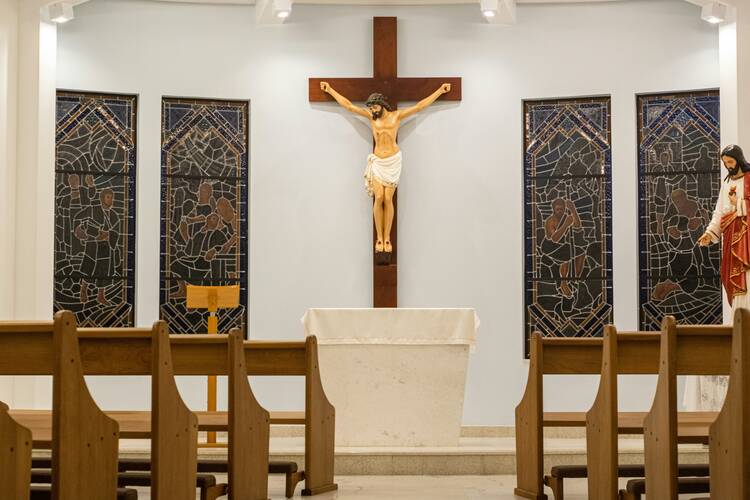A Reflection for the Memorial of Saints Andrew Kim Tae-gŏn, Priest, and Paul Chŏng Ha-sang, and Companions, Martyrs
Find today’s readings here.
“If there is no resurrection of the dead,
then neither has Christ been raised.
And if Christ has not been raised, then empty too is our preaching;
empty, too, your faith.” (1 Cor 15:13-14)
Let’s be honest: we all have parts of Catholic teaching or practice that we struggle to believe or understand. Maybe it’s a particular Marian apparition, or whether that awfully-waxy saint’s body is really “incorrupt.”
In general, I think it's wise to not let these doubts have an outsized impact in our faith life. After all, there is a hierarchy of church teachings and corresponding levels of assent for each level. The late theologian Richard Gaillardetz was an excellent explicator of these distinctions. Priestly celibacy is probably the most commonly-cited example of a church discipline, meaning, it could in theory change at any point without much theological innovation.
The Resurrection, on the other hand, is a different story. Saint Paul is not mincing words in today’s second reading, which is either haunting or hopeful to me depending on the given day: If Jesus wasn’t raised from the dead, your faith is empty. Other translations use “in vain,” “void” and “useless.”
It does seem a bit harsh. Surely, there is some intrinsic good in Jesus’ ethical teachings, in the ritual habits that worship inculcates? But then again, maybe not. Maybe without the lynchpin of the resurrection all of our prayers and masses and sacraments and Catholic guilt over sin is, as Saint Paul says, empty.
For any Christian who has taken the life and commands of Jesus seriously, this presents a terrifying and thrilling proposition.
Occasionally, I’ll allow the following thought experiment to float into my conscious thoughts: What if it didn't happen? What if it is all a big con job? What if someone moved the body without telling anyone and the disciples were just participating in the world’s most successful con job, and I am just the latest sucker?
I was in the middle of a spiral like this in what I thought was the worst possible place: The Church of the Holy Sepulchre in Jerusalem’s Old City, where the tomb of Jesus is located. I was grieving the death of a loved one, and instead of praying on the power of life over death, I was wondering if any of it was true at all.
Luckily, my intrusive thought experiment was interrupted by another small but clear voice: Of course it’s true.
Of course it’s true. That very thing that I most long to be true actually is. And there is a consolation that comes with saying it that makes me sure that God has written this desire for Resurrection deep in my DNA. Reader, I wish I had something more concrete to give you here. It sounds like a cop out. Or maybe a little Gnostic. But sometimes these moments in prayer come and they resist an explanation that will satisfy an outside questioner. I think that’s probably how the disciples felt after their experience of the Resurrection (although by all accounts their experiences were a lot more dramatic than a subtle nudge from God in a moment of prayer.) Maybe they felt like they didn’t have the words to convince another person of the fullness of the Gospel. But whatever they experienced convinced many of them to give up their own lives in order to share it.
Of course it’s true. This has become something of a mantra I return to in prayer. It is not a logical, rational rebuttal to any of my doubts (though those are out there) but rather an answer to a question and desire written on the human heart. The thrill and hope that this mortal life isn’t all there is. That one day we will see God and each other face to face, the way that we really are.
If Christ wasn’t raised from the dead, this is all worthless. Lucky for us, he was.








